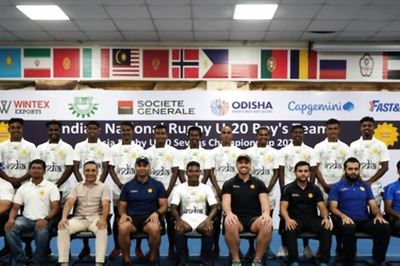
views
After the drubbing it received in Kerala despite a Modi wave in the rest of India, the BJP could do well to learn from the lessons its own Smriti Irani taught Congress chief Rahul Gandhi in UP’s Amethi.
In 2014, both Amethi and Thiruvananthapuram had gone down to the wire. In the latter, BJP’s O Rajagopal, the lone saffron party MLA in Kerala Assembly, maintained a lead over senior Congress leader Shashi Tharoor till the last lap of counting. In a photo finish, Tharoor had won by a margin of 15,470 votes.
In Amethi, Gandhi had managed to win by 1,00,903 votes.
Despite the defeat, Irani didn’t give up. She visited the constituency at every opportunity she got and made the people aware of her regular presence there. She also identified a group of locals who began working at the booth-level, gathering information on the state of the constituency and its problems. Backed by the government machinery, she made people aware of the changes that could be brought about.
Not allowing Rahul Gandhi to take credit for any development works, she ensured her presence at every important function.
With the help of BJP’s mammoth organisation, she managed to win the trust of Amethi, sending Rahul Gandhi searching for a safe seat down south. That search eventually ended in Kerala’s Wayanad, which Gandhi won comfortably.
It should have been a cakewalk for the BJP in Thiruvananthapuram too since Tharoor didn’t make frequency visits to his constituency, busy as he was with party responsibilities. His rival and BJP veteran O Rajagopal broke the jinx in the 2016 assembly elections when he won the Nemom seat and became the saffron party’s first-ever MLA in Kerala.
With Rajagopal in the Assembly, the BJP’s best bet to take on Tharoor in the Lok Sabha elections was its state unit chief Kummanam Rajasekharan. But unlike Irani, no one from the Rajasekharan camp made efforts to make his presence felt there. He had enough on his plate as the Kerala BJP chief, but there was nothing stopping the party’s local machinery from doing the ground work.
And then came the biggest political blunder. Rajasekharan was shipped off to Mizoram as the governor on the eve of a crucial bypoll and the Kerala BJP was headless. The vacuum and power tussle continued for two more months before PS Sreedharan Pillai was made the chief.
The presence of Rajasekharan was particularly missed during the entire Sabarimala controversy, leading to miscommunication and misunderstanding between the RSS and the BJP. After immense pressure from the Sangh, the central leadership relieved him from Mizoram governorship.
Three months were wasted in zeroing in on Rajasekharan as the challenger against Tharoor from Thiruvananthapuram. Rajasekharan resigned on March 8 and Kerala voted in general elections on April 23, leaving him with just one-and-a-half months of campaigning.
The ground work started soon after the announcement of his candidature and the RSS took over the charge to ensure the victory of his former pracharak. But grooming a constituency from scratch is not an easy task. Kerala is not a pro-BJP state and with tough competition from the Left and the Congress, the delay in naming the candidate hurt the party.
While in Amethi the odds were against Irani, everything was to the BJP’s advantage in Thiruvananthapuram — sharp religious polarisation among Hindus, a popular candidate, backing from the party machinery.
The BJP’s state unit must understand that this is not Navsari, Ahmedabad, Gandhinagar or Vidisha. Kerala is a state where the BJP faces sharp resistance not only on the political front, but also on socio-religious issues.
For a breakthrough in God’s Own Country, the BJP must establish a strong network of the assembly constituency units. More freedom must be given to the chiefs of these units and the work should start at every booth. With the party having an absolute majority at the Centre, it’s quite natural that retired bureaucrats and neo-advisors pop up, but ultimately the party lies in the hands of the karyakartas, and the realisation of this fact is the key to winning elections.
(The author is a freelance writer based in Kochi. Views are personal)


















Comments
0 comment